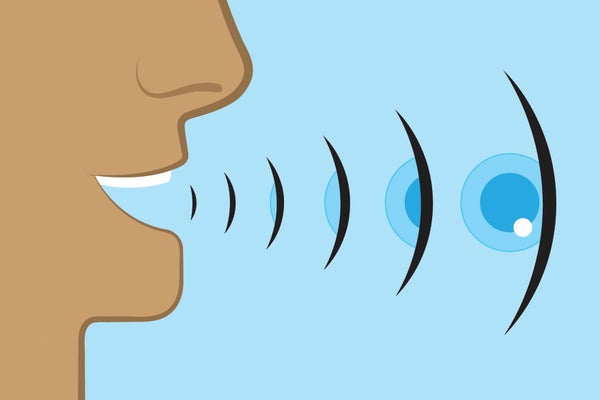October 24, 2024
2 min read
Anyone Can Learn Echolocation in Just 10 Weeks—And It Remodels Your Brain
Human echolocation repurposes parts of the brain’s visual cortex for sound, even in sighted people
Human echolocation has at times allowed people to ride bikes or play basketball despite being completely blind from a very young age. These echolocators typically perceive their environment by clicking sharply with their tongues and listening to differences in the sounds reflected off objects.
Brain-imaging studies reveal that expert echolocators display responses to sound in their brain’s primary visual region, and researchers have speculated that long-term input deprivation could lead to visual regions being repurposed. “There’s been this strong tradition to think of the blind brain as different, that it’s necessary to have gone through that sensory loss to have this neuroplasticity,” says Lore Thaler, a neuroscientist at Durham University in England.
Thaler co-led a 2021 study showing that both blind and sighted people could learn echolocation with just 10 weeks of training. For more recent work in the journal Cerebral Cortex, she and her colleagues examined the brain changes underlying these abilities. After training, both blind and sighted people displayed responses to echoes in their visual cortex, a finding that challenges the belief that primary sensory regions are wholly sense-specific.
On supporting science journalism
If you’re enjoying this article, consider supporting our award-winning journalism by subscribing. By purchasing a subscription you are helping to ensure the future of impactful stories about the discoveries and ideas shaping our world today.
The researchers trained 14 sighted and 12 blind people for between two and three hours twice a week over 10 weeks. They started by teaching participants to produce mouth clicks, then trained them on three tasks. The first two involved judging the size or orientation of objects. The…
Read the full article here

